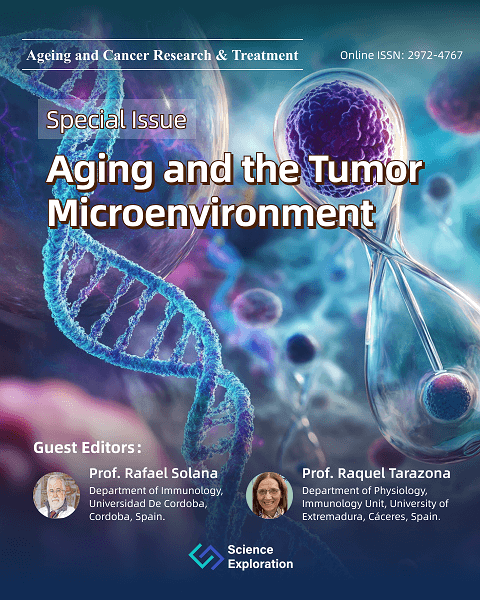Guest Editor(s)
Special Issue Information
Aging is a complex biological process marked by a progressive decline in cellular function, increasing susceptibility to various diseases, including cancer. As individuals age, their immune system undergoes a deterioration known as immunosenescence, which significantly weakens the body's ability to recognize and eliminate neoplastic cells. This decline in immune surveillance can enable tumor cells to evade detection and proliferate more aggressively.
The tumor microenvironment plays a critical role in cancer progression. It consists of immune cells, fibroblasts, blood vessels, and signaling molecules that collectively influence tumor behavior. With aging, the composition and function of this microenvironment undergo significant changes, often becoming more pro-inflammatory. This chronic inflammation can create a favorable niche for tumor development and progression, posing additional challenges for treatment.
Understanding the intricate relationship between aging and the tumor microenvironment is essential for developing effective cancer prevention and treatment strategies, particularly for older populations. Advancements in this field may pave the way for innovative therapies that target the immunosuppressive and pro-inflammatory components of the tumor microenvironment, ultimately enhancing immune responses and improving patient outcomes.
Contact Us
Journal Editorial Office Email: acrtjournal@sciexplor.com
For Author Instructions, please refer to: www.sciexplor.com/acrt/author_instructions
For Online Submission, please login at: http://www.intellimanus.com/#/login?journalPath=acrt

